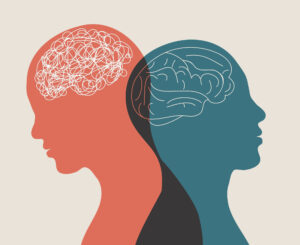Episode Summary:
Ophthalmology is a medical-surgical specialty concerned with studying and treating disorders and diseases of the eye. This episode reviews common conditions affecting the eye and our vision. Find out what you need to know to take appropriate care of your eyes. Learn how different eye diseases are diagnosed and treated. Listen to Dr. Alder speak about innovations in disease management. Learn how to preserve and optimize your vision.
Guest:
Brian Alder, M.D. is a fellowship-trained cornea, external disease, and refractive eye surgeon. He received his medical degree from Duke University in Durham, North Carolina, where he interned and then advanced to Chief Resident during his residency. Dr. Alder published numerous articles and abstracts related to eye conditions and collaborated on cutting-edge corneal surgery research at Duke. Dr. Alder did his corneal fellowship training at Bascom Palmer Eye Institute at the University of Miami, recognized by U.S. News and World Report as the country’s number one hospital for ophthalmology.
Dr. Alder worked side-by-side with the most prominent cornea specialists in the world to learn the most up-to-date treatment of corneal disease. Shepherd Eye Center proudly presents Dr. Alder’s unique corneal expertise to Las Vegas.
Dr. Alder is Board Certified by the American Board of Ophthalmology and is a member of the American Academy of Ophthalmology and the American Society of Cataract and Refractive Surgery. Dr. Alder loves spending time with his wife and five children outside the office. His favorite pastimes include board games around the dinner table, playing sports, traveling, and watching movies with a family-sized bowl of caramel popcorn.
During This Episode, We Discuss:
During This Episode, We Discuss:
Ophthalmologist vs. Optometrist, what is the difference, who should you see for eye care?
What to expect from a general eye exam
When should you begin to get eye exams, what changes in eyesight should lead to an exam?
Common Eye Conditions:
- Cataracts
- Macular Degeneration
- Glaucoma
- Floaters (what is a floater and what’s not)
- Retinitis Pigmentosa
- Dry Eye and Excessive Tearing
- Cancers of the Eyes
- Viagra and the Eye
Quotes (Tweetables):
As you approach age 60, start thinking about more regular eye exams, maybe 50s, if you are having eye problems, certainly start at that time.
Dr. Alder
Cataracts are probably the most common disease that causes blurry vision and the most common surgery in the United States.
Dr. Alder
The outside of the eye is the Cornea, the window through which light passes on its way to the back of the eye, the Retina….. The light must bend at different places to focus properly and bends at the Cornea but also through a lens…… the lens can develop some opacity, that’s a Cataract.
Dr. Alder
In the minority of cases, especially if a floater comes on suddenly, often associated with not just a floater but a flash of light certainly if associated with any blurry vision, that floater is not caused by the simple vitreous issue but by retinal damage and needs to be immediately evaluated.
Dr. Alder
Recommended Resources:
The American Academy of Ophthalmology
Episode Transcript:
Coming soon!



